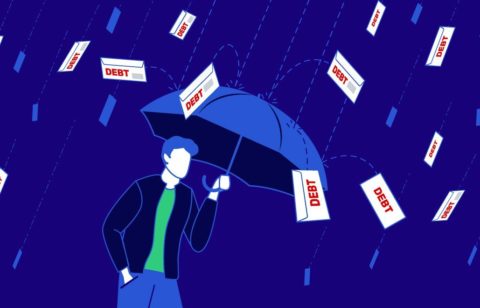Roughly, 80% of Americans are struggling with debt. Money and debt are sensitive topics; however, when a loved one is in financial trouble, it’s too important to ignore. Perhaps you’ve been there yourself, and you notice the signs of financial struggle. Perhaps a family member or friend has started canceling plans that involve eating out, or you notice a stack of unopened bills that keeps growing. There are several methods of how to talk to someone about their debt, such as lending an ear, offering tips and advice, or lifting some of the financial burden. Read below for some tips on how to talk to someone about their debt.
Recognizing the Signs
If you’ve been there before, then you know that sometimes it might appear as if everything is fine on the outside, even if you’re drowning in debt. Although it can be difficult to tell at times, there are still red flags to look for before you talk to someone about their debt:
- No savings account or stating that every dollar goes to bills or other expenses
- A pattern of declined credit card transactions
- This person has been accessing alternative banking services such as payday loans, rent-to-own services, or car title loans
- Working overtime or working multiple jobs to pay basic living expenses
- A habit of putting off necessary medical care, prescriptions, or procedures
- Selling personal items for extra cash
- Selling a car and taking public transportation
- Avoiding the topic of money and seeming anxious when it’s mentioned
- Overspending or living beyond means
- Asking you directly for a loan or financial assistance
It’s not always easy to identify the warning signs, but if you notice any of the above red flags, it might be time to offer some support.
How to Reach Out
Knowing how to talk to someone about their debt can be tricky. It needs to be approached without judgment. Many people don’t ask for help because they might feel embarrassed or believe they’ll be judged for their bad money habits or for making poor financial decisions.
Put yourself in the person’s shoes and start from a place of empathy. Be mindful of the fact that this person may not be keen on receiving unsolicited financial advice. Try talking about your own past experiences and money problems you’ve faced. Go into detail about how you escaped debt or how you learned to budget and manage your finances. Opening that door for conversation and making it known that you’ll listen without judgment can make a huge difference.
Offering Help
There are many options when it comes to how to talk to someone about their debt and offering your help:
Budgeting
Offer to help set up a budget. Whether you live paycheck to paycheck or you’re making six figures per year, knowing where your money goes and how to allocate your funds should be part of everyone’s financial plan.
Debt Payoff Plan
Debt from multiple sources can be overwhelming, but having a debt payoff plan can alleviate some stress. You can help put together a list of all debt owned and focus on one debt at a time.
Debt Settlement Program
Programs are available to negotiate debt with creditors and debt collectors. This can be a great way to settle debt for far less than the currently owed amount.
Financial Help
This one is a bit more complicated. Don’t feel forced to hand out cash, but you can offer to pay a bill or get a gift card for groceries or gas.
Be Prepared
If you need to talk to someone about their debt, be prepared. Make it clear that debt doesn’t have to be forever. The person might not be ready to open up about it yet, or might not be interested in receiving financial advice. Debt and money problems are stressful, but it’s possible to come back from it. Approaching the subject with consideration and offering the right tips and resources when you talk to someone about debt could be the first step toward debt resolution.





